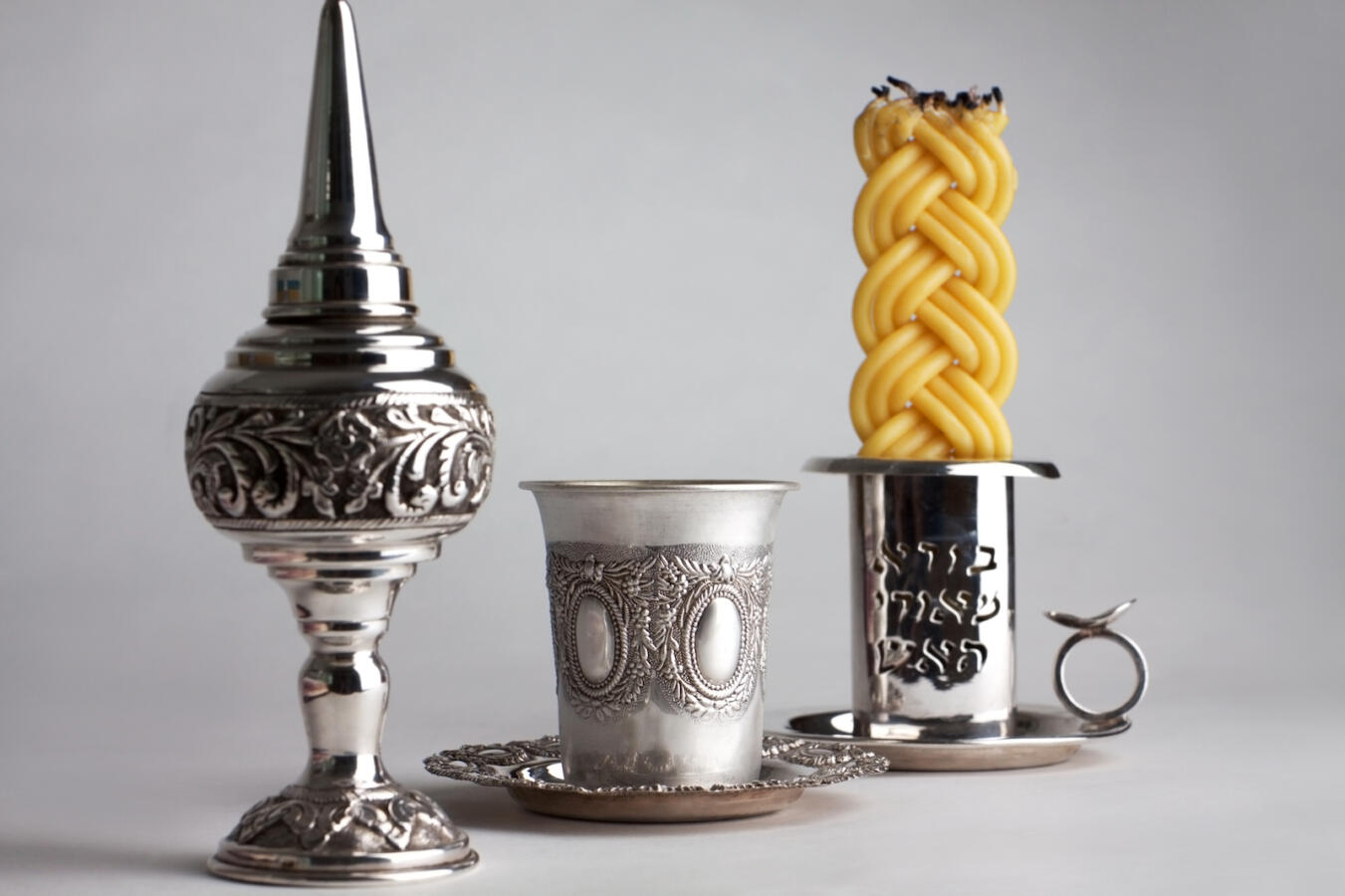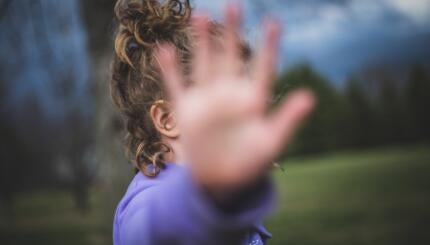Havdalah is a ceremony performed on Saturday night at the conclusion of Shabbat. The ceremony is brief and involves four blessings: over wine, spices, the light of a braided candle and the separation between the holiness of Shabbat and the rest of the week.
But what happens when a Jewish holiday falls on a Saturday night and the end of Shabbat no longer marks the beginning of non-sacred time? And is Havdalah also recited at the conclusion of holidays? Read on for a guide to these and other non-standard Havdalah ceremonies.
Havdalah for Saturday Night / Start of a Holiday
When a Jewish holiday begins on Saturday night at the conclusion of Shabbat (or outside of Israel, when the second night of a two-day holiday like Passover, Sukkot or Shavuot falls on a Saturday night), a modified version of Havdalah is recited. The common practice is to incorporate Havdalah into the Kiddush that is said at the onset of the holiday meal, but with several modifications:
- No blessing is recited over spices
- No Havdalah candle is used; instead, the holiday candles are used
- The blessing over wine is included in the Kiddush blessing over wine
- The final blessing is modified from the standard bein kodesh l’chol (“between holy and secular”) to bein kodesh l’kodesh (“between holy and holy”)
Havdalah After Holidays
A modified version of Havdalah is recited at the close of all biblical holidays: Rosh Hashanah, Yom Kippur, Sukkot, Passover and Shavuot. This version of Havdalah omits the blessings over the candle and spices, with the exception of Yom Kippur, when the blessing over the candle is included.
With your help, My Jewish Learning can provide endless opportunities for learning, connection and discovery.
Havdalah During Hol Hamoed
The first and last days of the weeklong festivals of Passover and Sukkot are known as yom tov (literally “good day”) and are much akin to Shabbat in that restrictions on creative labor are in force. The intermediate days are known as hol hamoed (literally “the weekday of the festival”) and most holidays restrictions are suspended.
The same Havdalah ceremony recited at the conclusion of biblical holidays is recited to mark the transition from yom tov to hol hamoed, so long as the first day of hal hamoed is not Shabbat. This version includes the blessings over wine and the separation of sacred and non-sacred time and it omits the blessings over spices and the candle.
Havdalah for Friday Night / End of a Holiday
When a Jewish holiday ends on a Friday night just as Shabbat begins, no Havdalah is recited.



